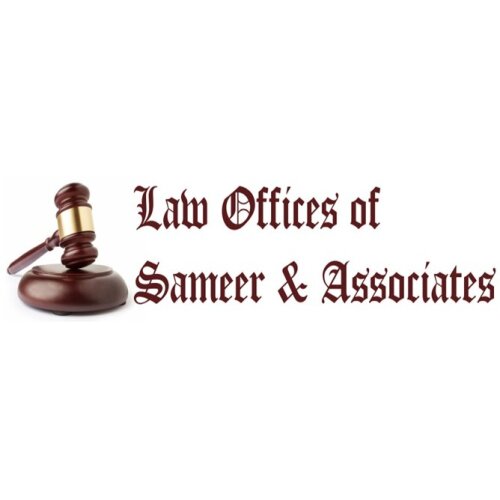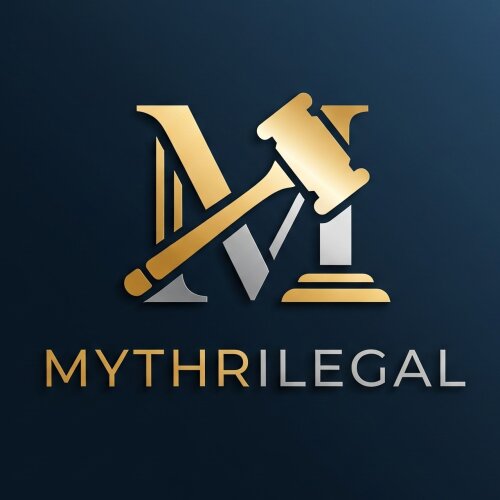Best Bankruptcy & Debt Lawyers in Hyderabad
Share your needs with us, get contacted by law firms.
Free. Takes 2 min.
List of the best lawyers in Hyderabad, India
India Bankruptcy & Debt Legal Questions answered by Lawyers
Browse our 2 legal questions about Bankruptcy & Debt in India and read the lawyer answers, or ask your own questions for free.
- Loans
- Currently I am multiple unsecured loans. Due to mental health issues I lost my job and all assets. So should I go for Individual bankruptcy?
-
Lawyer answer by Quartz Legal Associates
Based on the facts shared, it is explained that at present, individual bankruptcy in India is not governed by the Insolvency and Bankruptcy Code (IBC) because the provisions relating to ordinary individuals have not yet been implemented by the Government....
Read full answer - Sir, I have to take my payment from my customer party & he is not paying
- Sir, I'm doing textile business & have supplied fabric to my party amt is 4,12,536/00. My customer is not giving payment still he is capable.
-
Lawyer answer by Quartz Legal Associates
Based on the facts stated, it is my considered opinion that you have supplied fabric worth ₹4,12,536 to your customer in the ordinary course of your textile business, the goods have been duly delivered and accepted, and despite being financially...
Read full answer
About Bankruptcy & Debt Law in Hyderabad, India
Bankruptcy and debt law in Hyderabad, India, is governed by the Insolvency and Bankruptcy Code, 2016 (IBC), which is a comprehensive piece of legislation aimed at consolidating and amending the laws relating to reorganization and insolvency resolution of individuals, partnerships, and companies. The IBC provides a legal framework for dealing with insolvency and bankruptcy issues in a timely and efficient manner. Hyderabad's legal infrastructure, with its array of experienced legal professionals and institutions, plays a critical role in facilitating bankruptcy and debt resolution processes, ensuring justice and compliance with applicable laws.
Why You May Need a Lawyer
Individuals and businesses in Hyderabad may require legal assistance in bankruptcy and debt situations for several reasons. A lawyer can provide valuable guidance on:
- Navigating Complex Legal Processes: Bankruptcy and debt resolution involve various stages and complex procedures that require specialized legal knowledge.
- Protecting Rights and Assets: Legal professionals help clients understand their rights and options to protect personal or business assets from liquidation.
- Representation in Court: Insolvency proceedings might necessitate representation before the National Company Law Tribunal (NCLT) or other judicial bodies.
- Debt Negotiation: Lawyers can negotiate with creditors to restructure debts, potentially resulting in more favorable terms.
- Compliance and Documentation: Ensuring that all legal documentation is accurately completed and deadlines are met is crucial to avoid further complications.
Local Laws Overview
In Hyderabad, as in the rest of India, bankruptcy and debt matters are primarily governed by the Insolvency and Bankruptcy Code, 2016. Key aspects include:
- Insolvency Resolution Process: The IBC provides a time-bound process for resolving insolvency cases to maximize asset recovery.
- Adjudicating Authorities: The National Company Law Tribunal (NCLT) is the adjudicating authority for companies and limited liability partnerships, while the Debt Recovery Tribunal (DRT) handles cases for individuals and partnership firms.
- Creditors' Committees: A committee of creditors is formed to facilitate the insolvency resolution process, with significant authority over the proceedings.
- Liquidation: If insolvency resolution is not achieved within the prescribed period, the debtor's assets may be liquidated to repay creditors.
- Cross-Border Insolvency: While not fully developed, certain provisions relate to dealing with assets and proceedings involving foreign jurisdictions.
Frequently Asked Questions
What is the Insolvency and Bankruptcy Code (IBC) 2016?
The IBC is a comprehensive legislation aimed at streamlining and consolidating the insolvency and bankruptcy processes across India, ensuring efficient resolution of financial distress for individuals and businesses.
Who can file for bankruptcy under the IBC?
Individuals, partnership firms, and companies facing financial distress can file for insolvency proceedings under the IBC, provided they meet certain criteria established by the code.
What is the role of the Insolvency Professional?
Insolvency Professionals manage the insolvency process, assess the debtor's financial status, and facilitate negotiations between the debtor and creditors to devise a resolution plan.
How long does the insolvency resolution process take?
The IBC prescribes a timeline of 180 days for the insolvency resolution process, extendable by an additional 90 days, to ensure time-bound and efficient resolution.
What happens to my assets during bankruptcy proceedings?
During bankruptcy proceedings, assets may be subject to liquidation to repay creditors. However, exemptions and protective measures may be available depending on the case specifics.
Can individual debts be restructured without declaring bankruptcy?
Yes, through negotiations facilitated by legal professionals or restructuring agreements, debts can often be restructured without filing for bankruptcy.
Are there alternatives to bankruptcy for businesses?
Businesses may explore alternative options like strategic debt restructuring, mergers, or asset sales to manage financial distress without full bankruptcy proceedings.
How does one start the bankruptcy process?
To initiate the bankruptcy process, a debtor or creditor must file an application with the appropriate adjudicating authority, such as the NCLT or DRT, depending on the debtor's profile.
What is the impact of a bankruptcy filing on my credit score?
A bankruptcy filing can significantly affect your credit score, reflecting negatively on credit reports for several years and impacting future creditworthiness.
Can foreign creditors participate in proceedings under the IBC?
Yes, foreign creditors have the right to participate in insolvency proceedings under the IBC and may have their claims adjudicated alongside domestic creditors.
Additional Resources
For individuals in Hyderabad seeking further information or assistance with bankruptcy and debt issues, the following resources can be invaluable:
- The Insolvency and Bankruptcy Board of India (IBBI): Offers comprehensive guidelines and updates on the IBC.
- Local Legal Aid Clinics: Provide free or affordable legal advice for those in financial distress.
- National Company Law Tribunal (NCLT): For corporate insolvency and resolution cases.
- Debt Recovery Tribunals (DRT): Primarily for individual and partnership firm-related insolvency cases.
- City-Specific Support Groups: Local organizations that might offer support and guidance during financial hardships.
Next Steps
If you are facing bankruptcy or debt challenges in Hyderabad, it is advisable to consult with a legal professional who specializes in this field. Start by:
- Researching Qualified Lawyers: Look for attorneys with experience in bankruptcy and debt resolution.
- Collecting Relevant Documentation: Gather all necessary financial documents to facilitate an informed discussion.
- Scheduling a Consultation: Most lawyers offer initial consultations where you can discuss your situation and explore potential solutions.
- Understanding Legal Fees: Ensure clarity on legal fees and associated costs before proceeding with representation.
- Exploring Legal Aid: If financial constraints are significant, seek legal aid services available for such cases.
Taking these steps can help you navigate your financial challenges more effectively, ensuring that you receive the necessary legal guidance to move towards a resolution.
Lawzana helps you find the best lawyers and law firms in Hyderabad through a curated and pre-screened list of qualified legal professionals. Our platform offers rankings and detailed profiles of attorneys and law firms, allowing you to compare based on practice areas, including Bankruptcy & Debt, experience, and client feedback.
Each profile includes a description of the firm's areas of practice, client reviews, team members and partners, year of establishment, spoken languages, office locations, contact information, social media presence, and any published articles or resources. Most firms on our platform speak English and are experienced in both local and international legal matters.
Get a quote from top-rated law firms in Hyderabad, India — quickly, securely, and without unnecessary hassle.
Disclaimer:
The information provided on this page is for general informational purposes only and does not constitute legal advice. While we strive to ensure the accuracy and relevance of the content, legal information may change over time, and interpretations of the law can vary. You should always consult with a qualified legal professional for advice specific to your situation.
We disclaim all liability for actions taken or not taken based on the content of this page. If you believe any information is incorrect or outdated, please contact us, and we will review and update it where appropriate.
Browse bankruptcy & debt law firms by service in Hyderabad, India
Hyderabad, India Attorneys in related practice areas.













